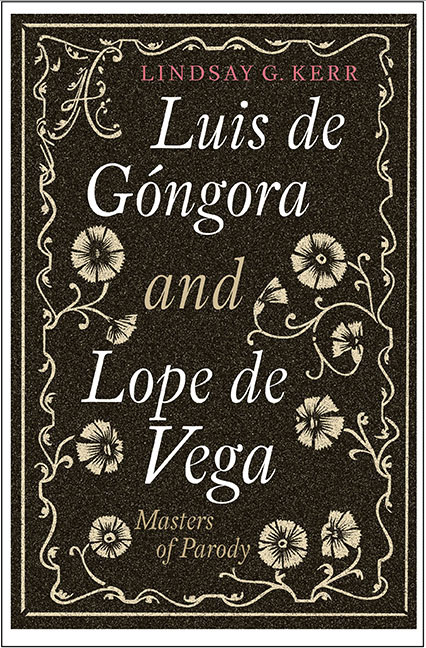3 - Las Rimas de Tomé de Burguillos
Published online by Cambridge University Press: 31 August 2018
Summary
Lope de Vega's Parody
In 1634, the year before his death, Lope de Vega published an anthology of poetry in the parodic mode, comprising 161 sonnets, 11 rimas sacras, various espinelas and canciones and the seven-silva, feline mock epic La Gatomaquia: the Rimas humanas y divinas del licenciado Tomé de Burguillos. The pseudonym was not a new creation, and the true author of the text was a thinly veiled secret, which raises some interesting questions about authorial intent and subsequent textual interpretations. Why would a poet like Lope de Vega, who sought to be taken seriously as the principal lyric poet of his age, and to reach the pinnacle of Parnassus during his poetic career, turn to parody towards the end of his life? Is it the culminating step in a parodic trajectory as it appears to be in Góngora, or does it carry out some other function? Felipe Pedraza Jiménez highlights Lope's late parodic poetry as a product of his état d'esprit, as well as a reaction to the socio-political forces of seventeenth-century Spain: ‘La poesía que antes le ha servido para expresar entusiasmos (eróticos, patrióticos, etc.), le ha de servir en los últimos años de su vida para “templar tristezas”’. In this chapter I will examine how and why the disillusionment and melancholy so often associated with ‘late’ Lope is manifest in parody, focusing on the poet's use of various ideologies (imperial or religious, for example) and interactions with classical philosophy and mythology. I will also examine the apparent sliding scale of ‘reality’ in relation to Lope's use of a pseudonym or alter ego, particularly concerning a perception of the ‘low’ or vulgar as more realistic than a highly ornate or idealised style.
The subjects of his parody are broad in spite of the uniform genre of Burguillos's Rimas (the sonnet is the dominant form), ranging from what Antonio Carreño calls ‘los ya vacíos referentes de la lírica renacentista’ to the obscure language of Góngora's ‘pájaros nuevos’, and including his own previous works, both dramatic and lyric. Of course, Lope's acerbic wit is not only unleashed against the moribund poetics of Petrarchism and the magniloquent obscurity of gongorine imitators, but frequently operates to propel his poetry firmly up the satirical spectrum.
- Type
- Chapter
- Information
- Luis de Góngora and Lope de VegaMasters of Parody, pp. 87 - 128Publisher: Boydell & BrewerPrint publication year: 2017



